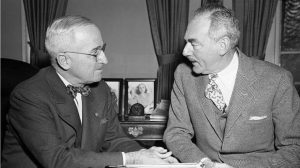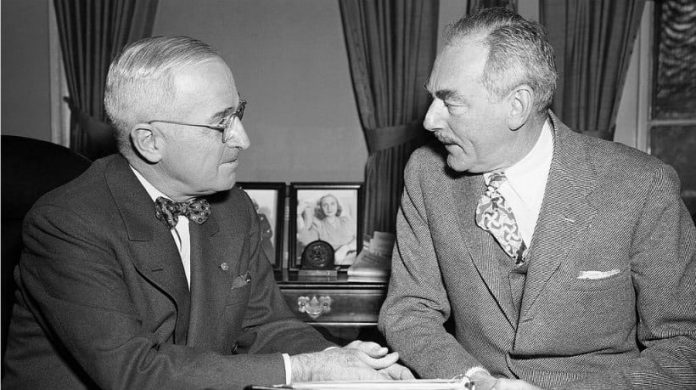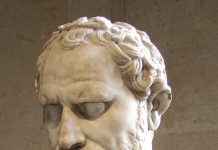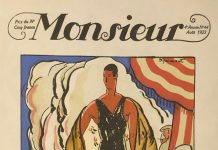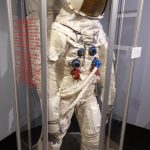Judging by the cover of Joe Scarborough’s book, one would assume this is primarily about President Harry Truman. But the old adage “one cannot judge a book by its cover” definitely applies here.
After the first three chapters, I wondered if I had picked up the wrong book. Truman was hardly mentioned. Rather, it was a deluge of sporadic historical backgrounds. The gist of the book turns out to focus not on Truman the man but on the Truman Doctrine, the Cold War, and its ramifications.
Very few new facts are revealed in the book: it is just a warmed-over rehash of historical accounts. The book is plainly written and the average reader would find it a fast read. Articulate and thought-provoking it is not. But for the layperson with limited historical perspective or reference, it is a good primer.
I did come across a few tidbits that are worth mentioning. On pg. 45 it is stated Truman was called up from the National Guard and had to undergo a physical exam. The doctor wrote his left eye was “blind” but passed him with the hope his glasses would not fall off in the trenches!
On pg 55 Teddy Roosevelt described President McKinley as having the backbone resembling a chocolate eclair. On pg. 57, we learn that due to isolation, by 1940 the US Army was only the 18th largest in the world.
Truman fired the director of the Secret Service for having attended his opponent’s abortive victory party in 1948 (Pg. 83). Finally, on pg. 126: the term ‘Cold War’ entered the popular lexicon via Newsweek journalist Walter Lippman.
So what is the Doctrine? The date was March 12, 1947. Truman believed it necessary to rein in Soviet expansion, so he delivered a speech to Congress that day. The title of Truman Doctrine was applied later, as it did not appear in his speech. As it turned out the flash point was Greece and Turkey. During World War II, the systematic destruction of Greece by Germany was calculated to wreck the Greek economy. Stalin was hoping to take advantage of the situation by turning Greece into a Communist satellite. Since the United Nations was too weak to intervene, Truman and Secretary of State Dean Acheson acted.
The President persuaded Congress to give $400 million in aid to both Greece and Turkey, thus stabilizing the situation. Unlike most stated goals of recent date, this one “achieved its purpose – making Soviet interference in the Greek Civil War politically and economically unwise.” It also had lasting influence. The Truman Doctrine, writes Scarborough, “would change America’s foreign policy construct for the next 70 years.”
Scarborough does give some historical perspective here, comparing the Truman Doctrine to the Monroe Doctrine promulgated by Pres. James Monroe in 1823. It essentially told European powers they could not meddle in affairs on the American continent. The 1947 Doctrine told the Soviets they could not meddle in Europe! After Congress approved the passage of the bill in 1947, a Republican congressman, Frank Case, presciently warned “No country, our or any other, is wise enough or rich enough, or just plain big enough to run the rest of the world.” That is a sober reality the U.S. is learning the hard way in the 21st century, with adversaries everywhere ready to take advantage of a country morally weakened by its own president and enablers in Congress, many of whom rejoiced at the Insurrection of January 6, 2021. Like a day Truman knew well, Pearl Harbour Day, it is now sadly engraved on the heart of every true patriot as a day which will live in infamy.
Another critical issue faced in the post-war Administration of Truman was Israel. “Truman decided to recognize Israel’s existence following Great Britain’s rapid withdrawal in 1948.” But he became frustrated with the leaders of Israel and said, “If Jesus Christ couldn’t satisfy the Jews while on earth, how the hell am I supposed to do it?”
The book includes no photos or diagrams; a very general 3-pg note on sources (no quotations in the book are specifically footnoted), and an index.
In conclusion, Scarborough should leave the historical perspectives to other more insightful writers and rather continue on with his regular pontification of current events on MSNBC.
Saving Freedom (257 pgs) is $29.99 by Harper Collins.
Review written by Dr M. Emanuele
